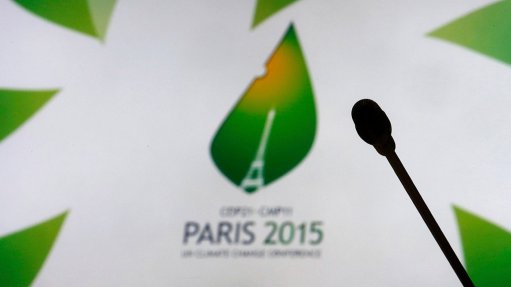
South Africa has worked hard in contributing to the United Nations efforts to launch a new phase for action on sustainable development and climate change, and the country is pleased that the process has come thus far, said President Jacob Zuma in Paris ahead of the Leader’s Event at the UN climate change conference in Paris on the 30th of November.
In 2010 President Jacob Zuma co-chaired with the President of Finland, Excellency President Tarja Halonen, a 21 member High-Level Panel on Global Sustainability created by the United Nations Secretary-General.
This Panel consisting of leading policy makers sought to create a blue print for achieving low carbon prosperity in the 21st Century. The GSP report Resilient People, Resilient Planet: A Future Worth Choosing on 30 January 2012 in Addis Ababa.
The High-Level Panel on Global Sustainability influenced the United Nations Conference on Sustainable Development (UNCSD/“Rio+20”) where world leaders came together in 2012 to decide on how to reduce poverty, advance social equity and ensure environmental protection. The discussions focussed on two main themes: how to build a green economy to achieve sustainable development and lift people out of poverty and how to improve international coordination for sustainable development. The outcome of Rio+20 The Future We Want mandated a process under the United Nations to develop the post-2015 development agenda, building on the Millennium Development Goals.
In 2015 the United Nations adopted 17 Sustainable Development Goals (SDGs), including a goal on climate change, as part of the 2030 Agenda for Sustainable Development as a plan of action for people, planet and prosperity. It also seeks to strengthen universal peace, recognising that eradicating poverty in all its forms and dimensions, including extreme poverty, is the greatest global challenge and an indispensable requirement for sustainable development.
In addition, in 2011 South Africa hosted the COP17/CMP7 conference on climate change in Durban, where the President hosted several Heads of State and Government. This meeting proved a watershed in the climate change negotiations as it provided a roadmap to resolve a long standing division between developed and developing countries that has existed ever since the adoption of the United Nations Framework Convention on Climate Change (UNFCCC) in 1992.
At the Durban COP, thanks largely to the facilitation provided by South Africa, a consensus decision was reached to set up the Ad hoc Working Group on the Durban Platform for Enhanced Action (ADP). The ADP provides for the implementation of existing commitments by developed countries and the entry into force of the second commitment period of the Kyoto Protocol in the pre-2020 period and negotiations towards the adoption of a legal instrument to enhance action under the Convention in the post-2020 period.
In 2014 the President participates in the United Nations Secretary-General’s Climate Summit, which was convened to mobilise political will for the conclusion of the work under the Durban Platform.
Also within the framework of the African Union, South Africa played an important role in the development of Agenda 2063: The Africa We Want, which provides, among other things, that Africa must address the global challenge of climate change by prioritising adaptation in all our actions.
Issued by the Presidency